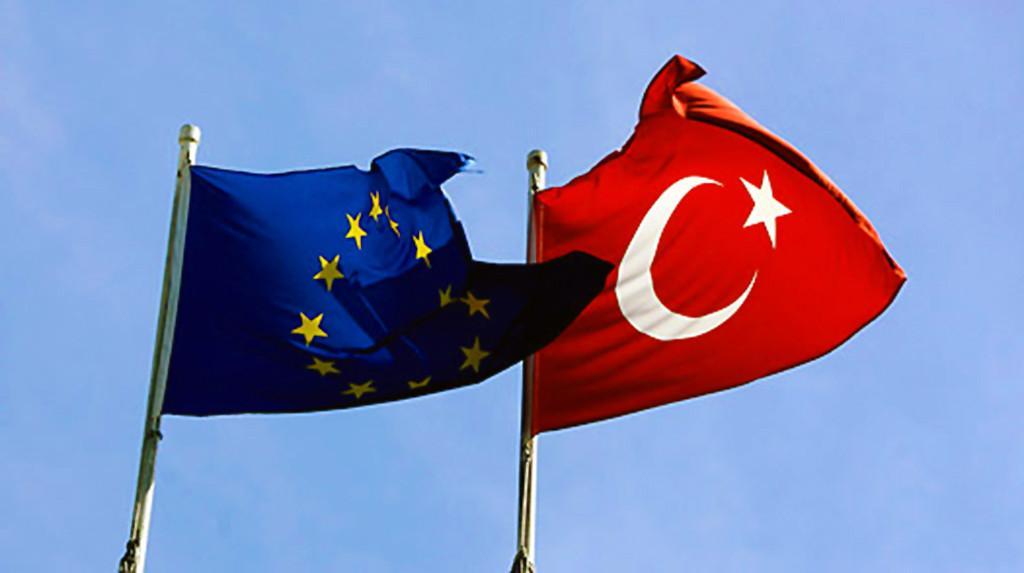Time to enhance the customs union: Analysis
MURAT ERSAVCI

Everyone seems to agree that the time has come to expand the customs union between Turkey and the European Union. A quarter of a century has gone by since it was launched at the start of 1996. At the time it was considered as a step forward to the full political and economic integration of Turkey into the EU.
But despite the passing of time, the accession negotiations opened in 2005 never led to membership. Turkey is no further than where it was then. Rejection – or at least a block which amounts to rejection in practice – meant that the customs union of 1996 has never been taken forward, even though it has been a considerable success for both sides. It has made Turkey into the fifth largest trading partner of the Union and inside Turkey helped foster the surge in growth which has transformed our country over the last 25 years.
That is the good side of the story and it has been a profoundly beneficial influence, helping stabilize Turkey-EU relations. That is important because, by effectively rejecting Turkish accession and freezing negotiations for a mixture of reasons, the EU has undermined the pro-European orientation of Turkey. Ankara since has been forced it to look other, less European directions. The freezing of various chapters of the negotiation has worsened the situation. It cuts across the interests of the people of the EU as well as of Turkey, but perhaps in Brussels they do not yet perceive this.
Let us be realistic. That block currently looks likely to continue indefinitely and certainly for as long as the EU leadership in Brussels and the European Council do not speak out against it. So the alternatives are either to see Turkey and the EU drift on in their present state, with new political rifts opening up between them, or to work together on the more limited aim of strengthening the trade and economic relationship between the two sides.
The idea that a revision and expansion of the customs union would provide some improvement is not new and it exists on both sides. One important issue is that Turkey has voice in making commercial policy and where third countries are concerned, it is treated as if it is not an EU member. This means that Turkish exports to other countries unfairly have an extra tariff slapped upon them, unless Turkey has an FTA with the concerned parties. In 2010, the EU decided to commission a report on this from the World Bank (apparently choosing an outside agency to do this in order to avoid it becoming entangled with issues inside the EU) and by 2014 the report and its recommendations were ready.
In its report the World Bank noted that there were piecemeal ways of carrying out these changes but advised that they would be best done in a single swift package. Its conclusions were strong that expansion of the customs union would benefit both sides. Furthermore, the European Commission in its impact analysis proposed further integration in trade and possible enhancement of the customs union.
Four years on however, a package deal is still no closer and the political relationship looks even more ragged. The commission proposal for a mandate to start the customs union negotiations were declined by the European Council on political grounds.
Along the way however, thinking about what is needed has also taken place on the Turkish side and some additional ideas for change have emerged. One new suggestion, put forward in 2017 by the Turkish think-tank Economic Development Foundation (IKV) was to create mechanisms for trading on the internet for goods between Turkey and the EU. This could be done slowly on an item-by-item basis or form part of an overall package.
Prominent think-tanks like TEPAV and IKV also pointed to the need to relieve the practical obstructions suffered by business and transport to Europe. Delays on trucks and drivers hinder business. These too are practical measures without political overtones and as such they ought to have been addressed long ago.
So perhaps the time has come for a pragmatic approach in which different problems are addressed one by one, without arousing the political opposition which unfortunately now seems to cloud Turkish-EU relations. As EU integration is based, first and foremost on economic integration, this will pave the way for further political cooperation and understanding. Therefore Turkey’s economic integration should not be hindered solely for political reasons, creating a paradoxical situation.
How could this work? Well the first step would have to be for the EU Commission and the Turkish authorities to have a clear understanding how this process would work and design some sort of an agenda. They should identify for which bits could be done first and which bits might be handled later. This could be done on an unobtrusive practical basis, without unnecessary fanfare. The important thing would be for both sides to share a road map for cooperation and regard it as a non-political matter.
An approach of this kind would surely be welcome for businesses on both sides, eager to maximize trade and investment. By boosting trade and the circulation of goods, and perhaps even some services, it would encourage a sense of common interest and interdependency.
Is this route possible? We cannot know until we have tried it. Let’s not forget that as several specialist studies point out, further integration in the context of customs union will be for mutual benefit.
















